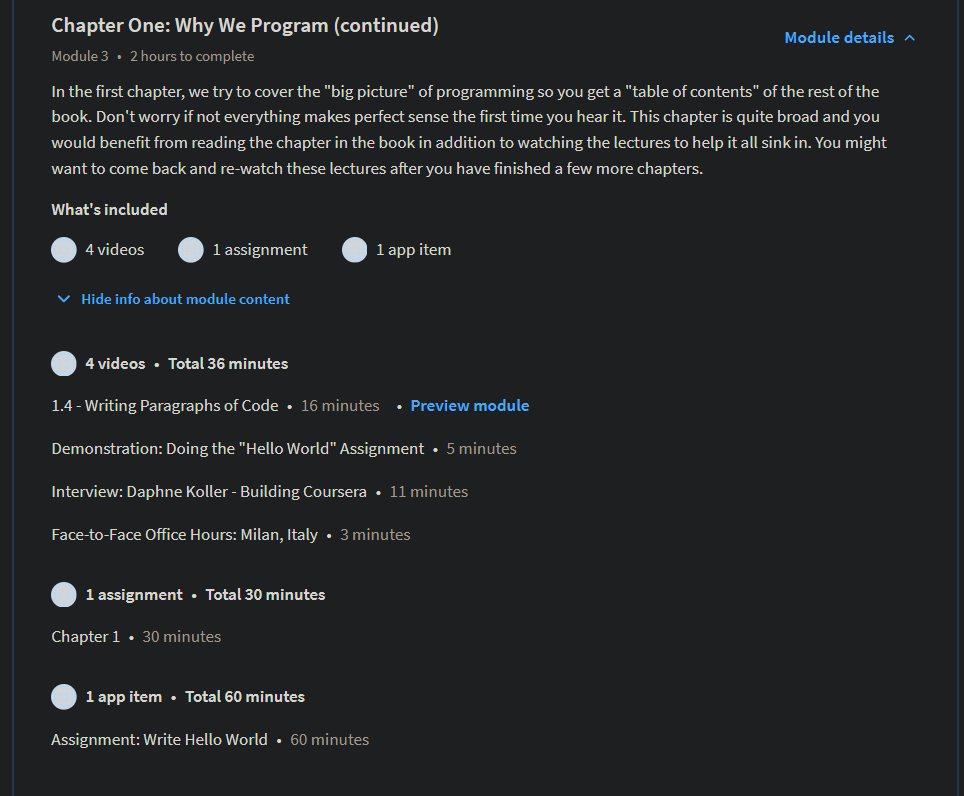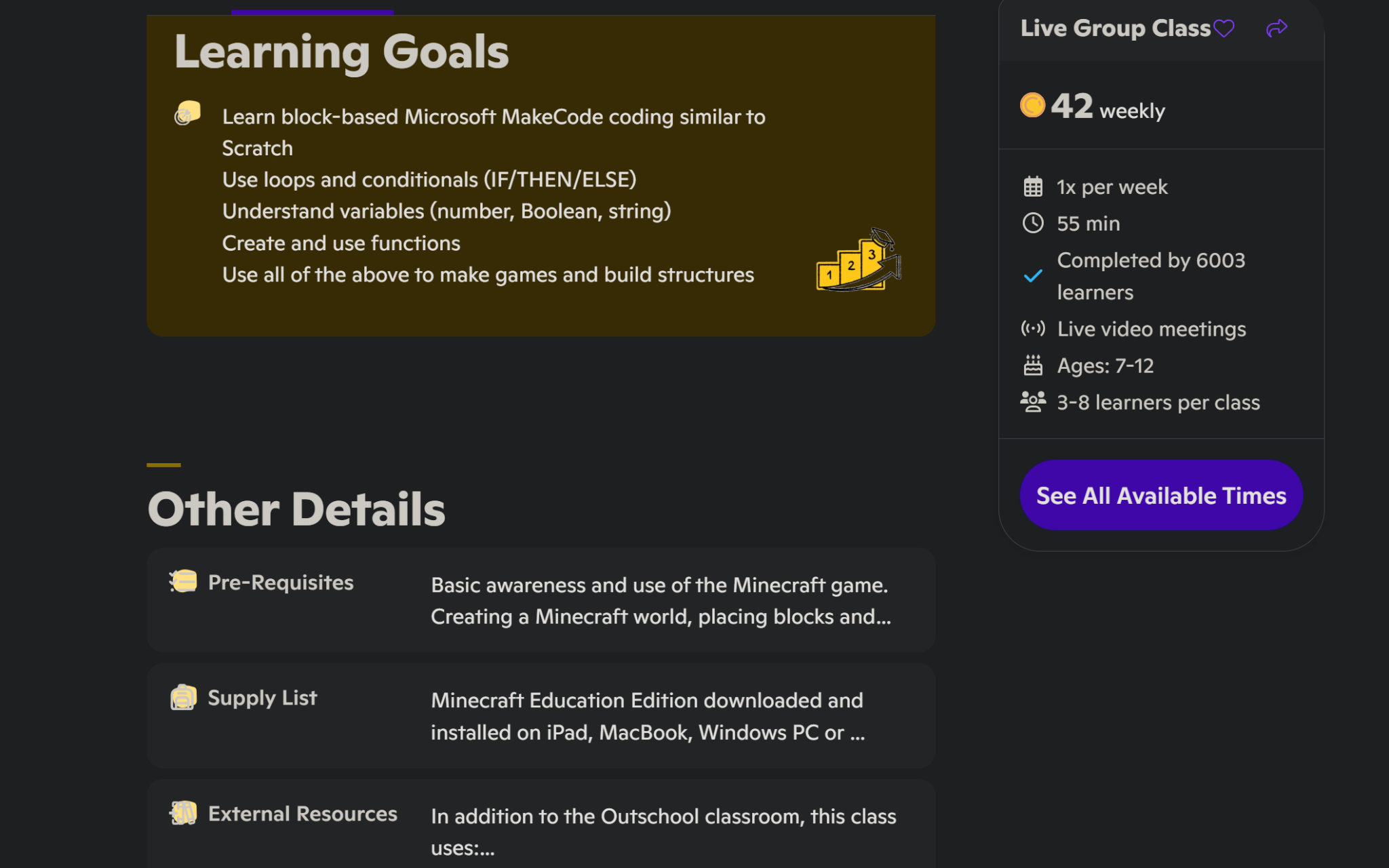Post#2 Observe what role teachers play now
During this week, I tried to get a better understanding of my subject and whether the role of the teacher is now really changing from lecturer to support staff. I think the best way to do this is to experience some lessons in real life and observe this shift from a student’s perspective. Observe real-life examples of educator roles in distributed learning environments. Specifically, I would like to examine:
- Whether teachers are still using lecture-based teaching methods.
- How well they engage learners through supportive strategies.
- The extent to which online platforms support teacher-learner interaction.
I mainly observed two learning platforms, Coursera and Outschool. Coursera is a globally recognized online learning platform with a variety of course types ranging from programming and psychology to education, data analytics, and more. There are introductory courses as well as complete professional paths. Courses are mostly recorded, however, with quizzes, discussion forums, and assignments. Individual courses come with online quizzes or Zoom seminars. In my experience, I think the instructor is still acting as a mentor on this platform, which is closer to a traditional classroom model. The instructor still uses a lecture format. Learners on this platform need to be more self-directed or driven to learn the skills of inking or to earn a certificate. There is some interaction between the instructor and the student, but not a lot.
Outschool is an online learning platform for students between the ages of 3 and 18, offering real-time interactive courses. Founded in the United States in 2015, it focuses specifically on small class sizes and personalized learning, with classes conducted via Zoom and an emphasis on active student engagement.
All courses are Zoom-live and teacher-led; it emphasizes “interest-driven”: students can choose courses based on their interests, with a high degree of autonomy; and it focuses on “guided teaching”: instead of one-way lectures, teachers usually guide students through questions, conversations, and tasks. Minecraft Coding is a class that uses a game as a vehicle, where everyone manipulates characters and learns introductory programming, breaking the class distance between teachers and students to a certain extent.

Short-term conclusions
From what I have observed so far, it is hard to say that the role of the teacher has completely shifted. Teachers still dominate the classroom as instructors, but it is clear that some platforms have begun to shift the role of the teacher from instructor to facilitator, and that these platforms tend to reach a younger audience that is more comfortable with this method of teaching and thus more interested in a particular area. I will continue this research in the rest term.



Hi Dylan, I liked how you looked at both Coursera and Outschool to see how teaching is changing. I found it interesting that younger students seem to do better with teachers who guide rather than just lecture. I noticed the same in my own learning too. Classes feel more fun and engaging when teachers ask questions or have discussions. I wonder if some Coursera teachers try to be more interactive in other ways, like using forums or feedback. Can’t wait to see what else you find!
Hi Janit, thanks so much for your comment! I’m glad you’ve also noticed that classes are more engaging when the teacher leads rather than just lectures . I think interest is always the best teacher, and when interest in learning is dominant, knowledge is often more fully understood when received actively than passively.
You raise a good point about Coursera – I do think some teachers try to build interaction through forums or peer feedback, but this often feels like a supplement rather than part of the core design. I’m curious if this is a limitation of the platform or a mindset issue. Since I didn’t make a payment, this is what I’ve learned so far.
I really appreciate these different environments, which reflect not only different approaches to teaching, but also different ideas about learning. Thank you again for participating so thoughtfully!